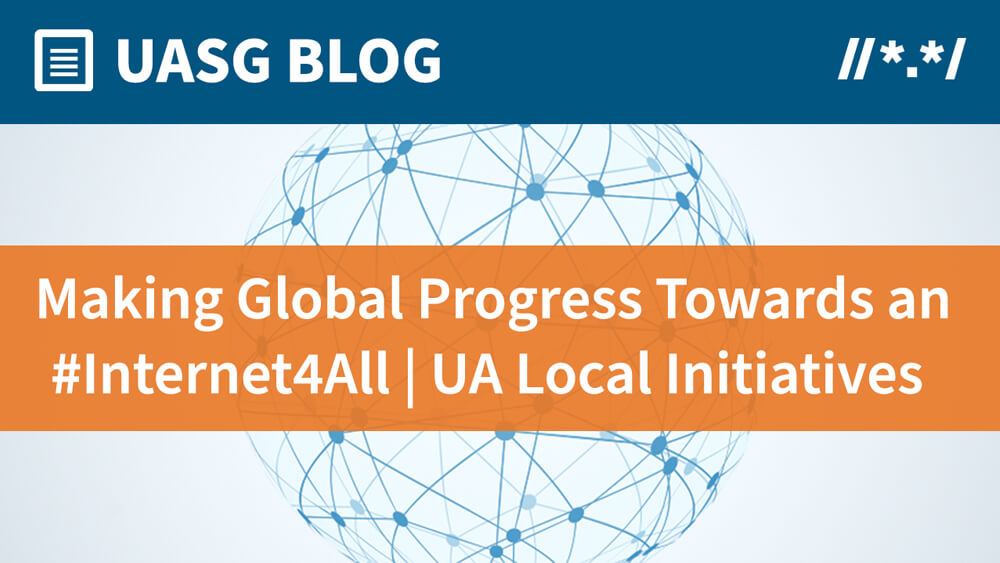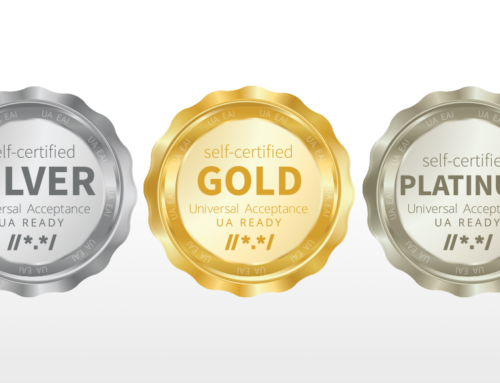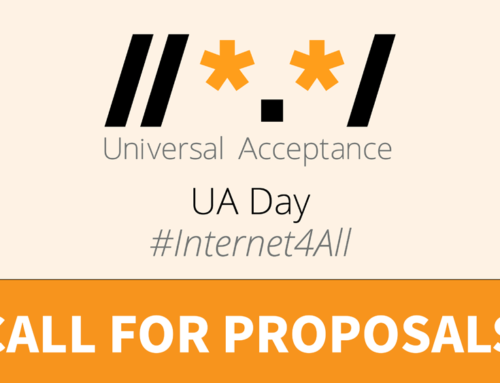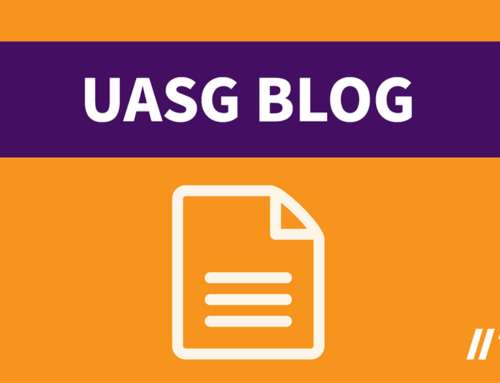By Ajay Data, UASG Chair – 29 October 2020
Throughout the year, the Universal Acceptance Steering Group (UASG) spearheads global projects that raise awareness of Universal Acceptance (UA) and seek to achieve a multilingual and inclusive Internet, one that ensures all domain names and email addresses – in any language, script, or character length (e.g., .рф, .ভারত, .PHOTOGRAPHY) – are accepted equally by all Internet-enabled applications, devices, and systems. Among these core projects are the UA local initiatives, which are led by community groups and stakeholders around the world. Members of local initiatives closely collaborate with UASG leadership, UA working groups, and the ICANN organization to address UA-readiness.
Recently, the UASG established local initiatives in China and Thailand to make progress towards an #Internet4All. These initiatives are the latest addition to those that have been ongoing in the Commonwealth of Independent States (CIS) – Eastern Europe (EE) and India. These groups have been hard at work raising awareness of the potential that UA brings to business, government, and any organization with an online representation. Continue reading for more detailed information on each of these initiatives. To view the bios of each UA Local Initiative Chair, click here.
CHINA UA LOCAL INITIATIVE – EST. AUGUST 2020
Overview: The Internet Society of China (ISC) established this UA local initiative to reach leading Internet community stakeholders. ISC is the secretariat for China’s UA initiative coordinating the implementation of local UA programs and activities. The ISC has identified impactful local initiative stakeholders from organizations with relevant expertise, including familiarity with Internet and Chinese domain name policy and governance, email address internationalization (EAI), as well as registry and registrar expertise.
Priorities: ISC’s top priority for the region is to conduct UA sessions and bring awareness to local stakeholders, specifically email service providers, government agencies, technical communities, registries and registrars, as well as website administrators.
Activities: Looking ahead, there are many exciting educational opportunities planned, including training courses on the fundamentals of EAI, workshops for executive level leadership of technology companies, as well as UA public workshops.
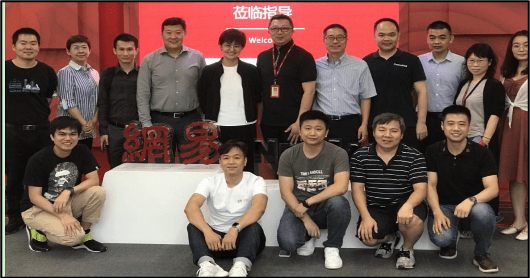
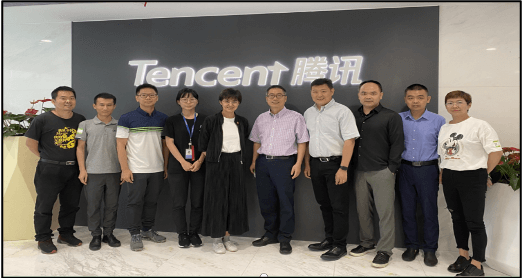
China UA Local Initiative outreach to NetEase and Tencent.
CIS-EE UA LOCAL INITIATIVE – EST. DECEMBER 2019
Overview: The Commonwealth of Independent States (CIS) – Eastern Europe (EE) local initiative represents seven countries, including Armenia, Belarus, Georgia, Latvia, Russia, Serbia, and Ukraine. To participate in outreach efforts, leaders of the CIS-EE initiative assembled a group of local experts and official representatives from 12 Internationalized Domain Name (IDN), country code top-level domain (ccTLD), and new generic top-level domain (gTLD) registries.
Priorities: Considering the local specifics and diversity of each country, the members of this local initiative have been focused on communication and collaboration with stakeholders within their respective countries. One of their key goals is to increase awareness and trust in IDNs and new gTLDs, as well as drive a stronger demand for EAI products and services.
Activities: To achieve their goal, the local initiative planned various activities, including trainings on UA engagement, hackathons, seminars for entrepreneurs, the development of educational materials, as well as presenting at regional meetings. The most recent and successful of the activities have included:
- Updating and distributing UA content to relevant stakeholders, including translating multiple UASG reports and materials into Russian, and conducting surveys to determine IDN and software usage at the local level.
- Determining UA-readiness of high-demand software in Russia.
- Launching the Cyrillic domains and mail infrastructure development project in April 2020 (Поддерживаю.рф ) which aims to develop an ecosystem to support email services in the Cyrillic script.
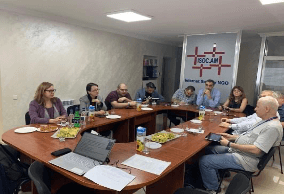
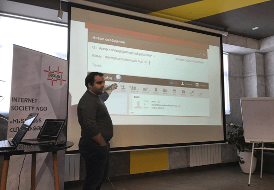
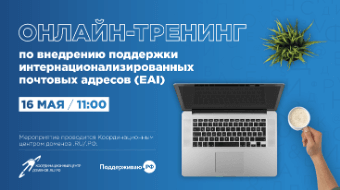
UA events held by CIS-EE UA Local Initiative.
INDIA UA LOCAL INITIATIVE – EST. MARCH 2020
Overview: The local initiative is spearheaded by the Indian Language Internet Alliance (ILIA), which is a part of the Federation of Indian Chambers of Commerce and Industry (FICCI), a non-government, non-profit organization formed in 1927 to support Indian businesses. ILIA is comprised of community members from business, technology, academia, and government, and it is working towards greater adoption of Indic scripts for content development in India.
Priorities: A key focus of the local initiative in India is to be a catalyst for change and to help stakeholders take “the next steps” to be UA-ready.
Activities: Over the past year, ILIA has driven many activities to spread UA awareness, including training workshops, webinars, outreach events, roundtable discussions, and community development. Particularly successfully webinar initiatives have included:
- An introduction session on the importance of language computing technologies during a global health crisis, which was attended by about 80 participants.
- A UA awareness session, which was attended by more than 100 participants.
- A technical workshop that provided an overview of UA and was attended by more than 50 participants with technical backgrounds.
- A session on the role of UA in the Indic Internet and language technology sector of India, which was attended by about 90 participants.
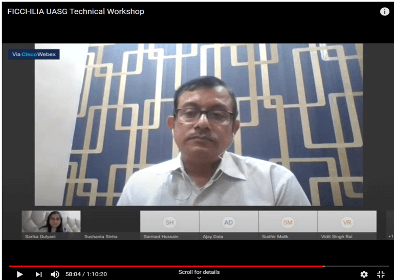
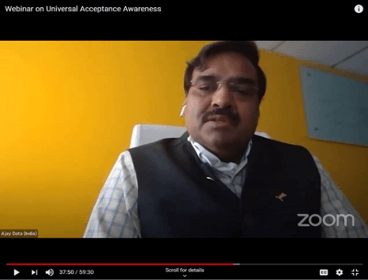
UA webinars held by the India UA Local Initiative.
THAILAND UA LOCAL INITIATIVE – EST. SEPTEMBER 2020
Overview: The Thai Network Information Center (THNIC) foundation is organizing the Thailand local initiative. The non-profit was established in 2007 as a center to develop, promote, and facilitate Internet usage in Thailand. THNIC is also focused on the use of the Thai language in Internet domains and email systems, and it manages the .th (Dot Th) and. ไทย (Dot Thai) top-level domains. Additionally, THNIC supports research and development of the Internet in Thailand and collaborates with government agencies, private academic institutions, and other organizations involved in Internet technology.
Priorities: The Thailand local initiative will focus on the adoption, use, and promotion of Thai email services, as well as ensuring its acceptance in software applications.
Activities: THNIC has planned many beneficial educational opportunities, including engaging with developers and administrators from local stakeholders and raising their awareness about UA, Thai IDNs and Thai EAI, as well as the benefits for end users. THNIC also plans to develop EAI training materials in the Thai language and organize hackathons on how to set up EAI email servers and apply internationalized email addresses in applications.
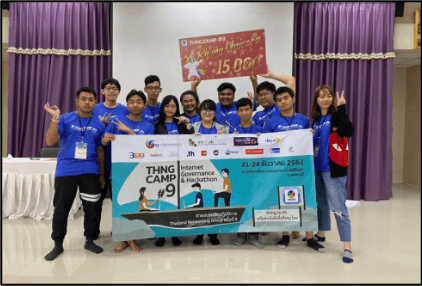
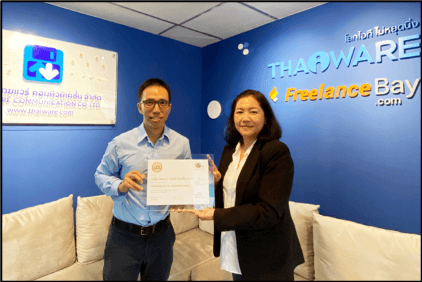
The Thailand UA Local Initiative hosted an EAI hackathon and recognized UA-ready websites
What Exactly Do Local Initiatives Do?
Local initiative activities are key to spreading awareness of UA at a regional level. Members of local initiatives play an important role in reaching out to and collaborating with stakeholders in a respective region and enabling them to promote and adopt UA readiness. They also inform messaging and communications for local stakeholders and identify relevant technical training requirements, audiences, and opportunities. Specifically, the local initiatives groups are tasked with undertaking plans that address three core areas:
- Technical collaboration: Members collaborate with technical stakeholders (e.g., technology developers and email service providers) to help them to implement UA-readiness in their software development cycle, as well as support Email Address Internationalization (EAI) in their email server deployments. Members also conduct technical trainings at relevant events and academic platforms regarding UA-readiness for website/application development and EAI-ready tools and configurations. Additionally, they identify local applications and web portals (e.g., e-government applications) that are relevant to test for UA-readiness.
- Influencer outreach: Groups raise awareness among technical and non-technical audiences regarding UA’s impact and challenges, while encouraging adoption. These outreach efforts include enlisting influencing organizations and individuals to promote UA-readiness, publishing articles in local journals and magazines, presenting on UA topics at technology events and conferences, as well as helping to develop case studies of UA-readiness based on local collaborations.
- Public sector engagement: Members raise awareness and promote procurement policies and standards to support UA-readiness. This is done by encouraging Governmental Advisory Committee (GAC) members to help promote UA nationally, interacting with relevant standards bodies to discuss UA and encourage updates to national accessibility standards, as well as meeting with national and local government policymakers to discuss the UA-readiness of local businesses and e-government websites, and encouraging national procurement policies that include UA requirements.
How to Get Involved
Are you interested in spreading awareness of UA? There are many ways to get involved with the UASG and achieving an #Internet4All!
- If you are interested in joining an existing local initiative or would like to learn about establishing a new one, please email uaprogram@icann.org
- Join another UA Working Group (Communications, EAI, Measurement, Technology).
- Follow the UASG on social media (Twitter, Facebook, LinkedIn).
- View the UASG FY21 Action Plan.
- Review materials and recordings from UA sessions at ICANN69:
- Outreach for Addressing Universal Acceptance – 10:30 AM UTC on 19 Oct.
- Remediating Universal Acceptance Issues – 12:30 PM UTC on 20 Oct.
- Community Update on Universal Acceptance Readiness – 10:30 AM UTC on 21 Oct.
- Check to see if your mail server is EAI-compliant.
- Find more information and resources.

